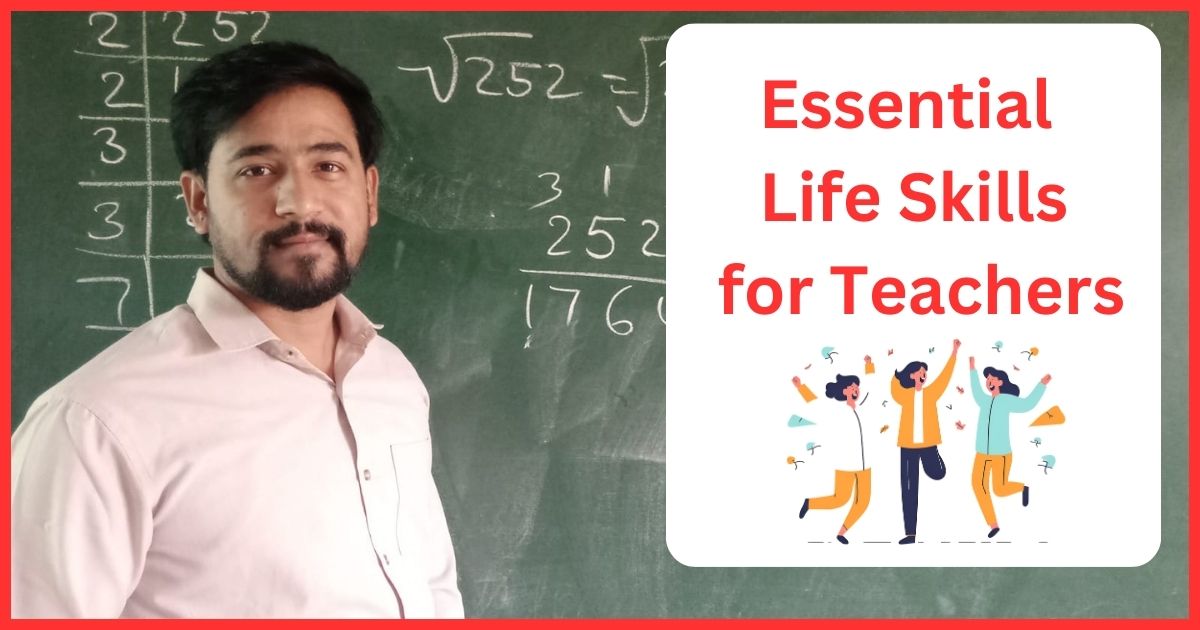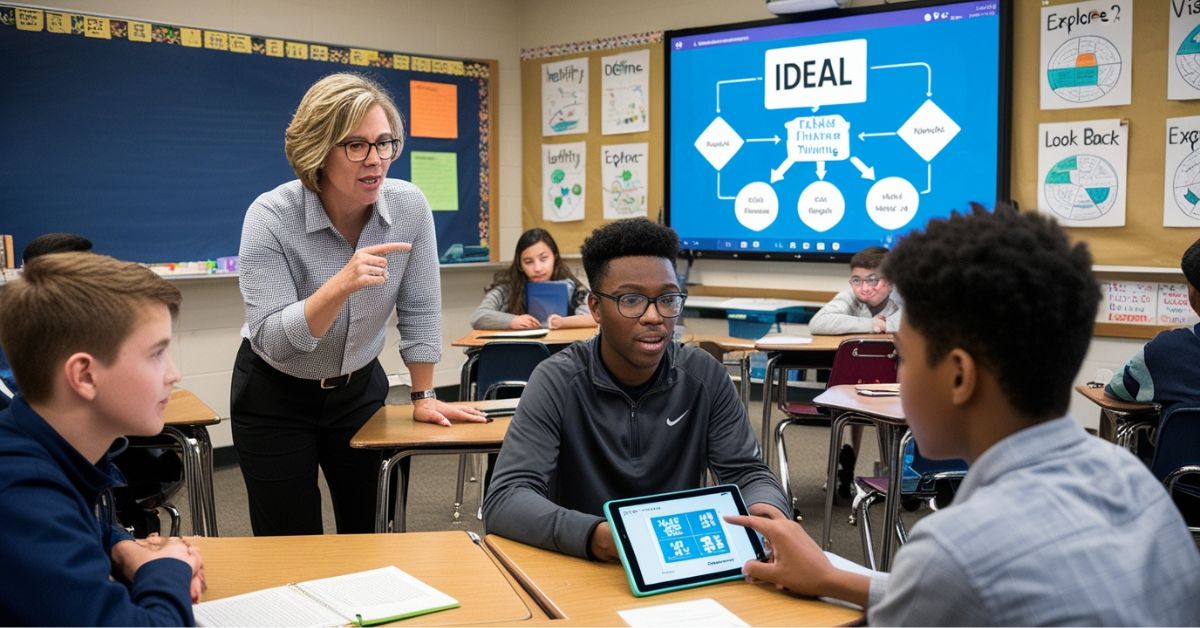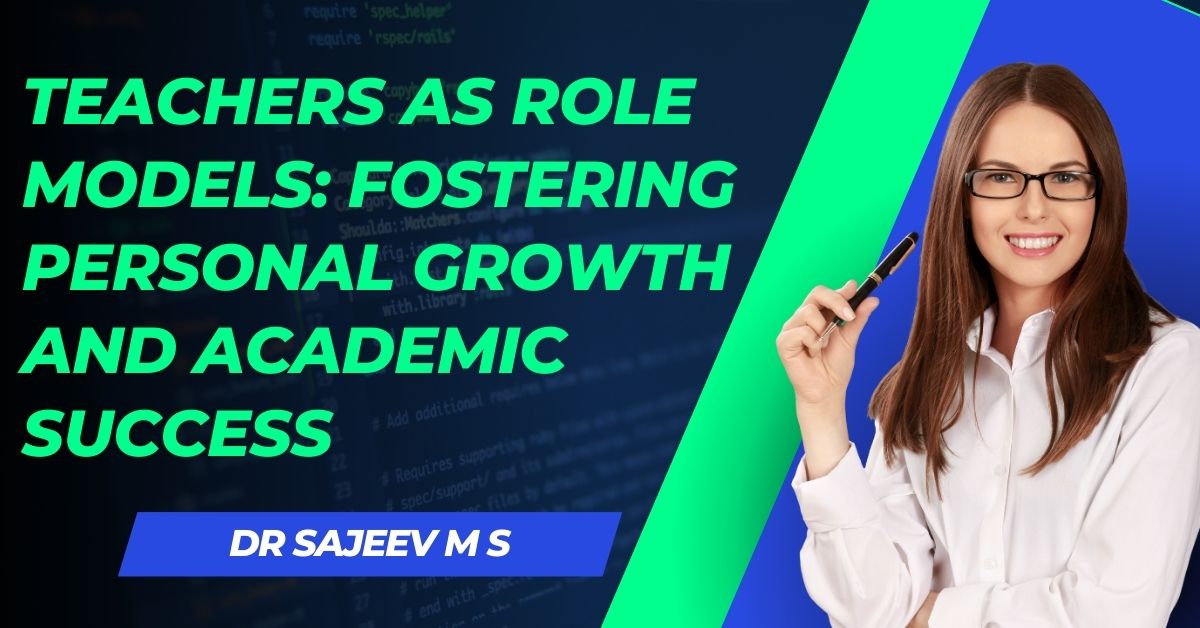What are the essential life skills for teachers in the twenty-first century? Teachers should be optimistic about the future and a lifelong learner. They are aware of the ever-changing trends in educational technology. Modern teachers should know about the career opportunities that will be available to their students in the future. The teacher of the twenty-first century is a visionary leader who understands the power of collaboration.
The teacher should be willing to collaborate with all stakeholders in education for the benefit of his students. In this article will think about the essential skills for twenty-first-century teachers.
Adaptability Skills for Teachers

It enables teachers to deal with unexpected situations without becoming frustrated. Teachers must learn to embrace change and maintain an open mind. They can achieve these skills by teaching students how to set attainable goals. Moreover, they must be able to modify their teaching style to accommodate various modes of learning as well as adapt to new technology.
A teacher, through this ability to adapt, will have an edge in dishing out some crises and venting their discontent or contempt into appropriate actions and words. Inside a super-active classroom, situations like conflicts caused by visiting technical teams, student misunderstandings, and sheer miscommunication are rather commonplace. Teachers negotiate these obstacles as if they were part of their task and take some care to ensure that their charges’ learning experiences aren’t too badly disrupted.
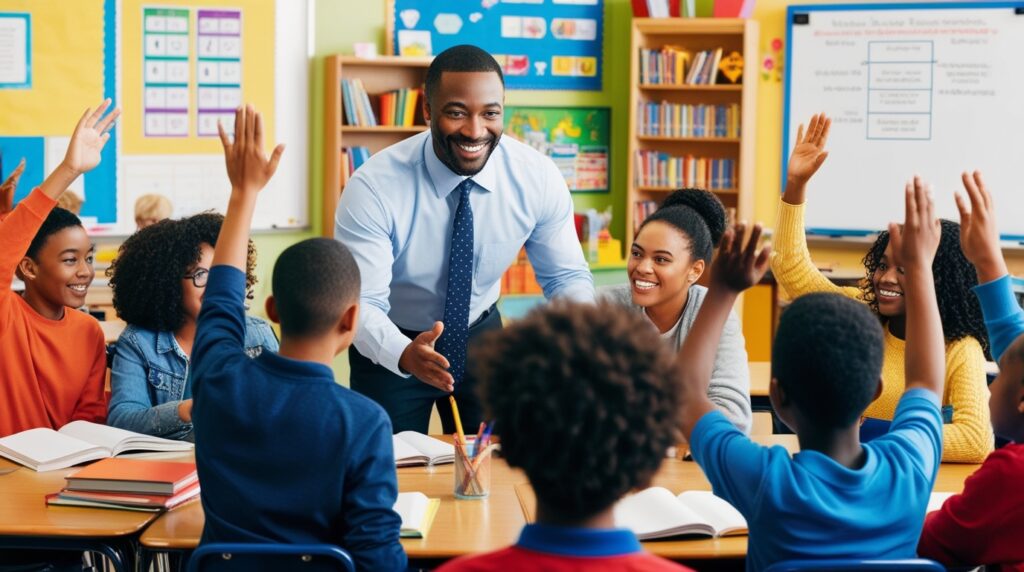
To build this adaptability quality, the teacher will also first teach students how to set realistic and accomplished goals. Such students help them build not only self-confidence but also sharpen their skills in modifying lesson plans by student progress. Teachers may also specify learning styles that adapt to different learning preferences. While some students prefer a visual or kinesthetic environment, others prefer auditory or written instructions to learn new concepts. Knowing the differences helps in making the instructional decisions that are anticipated to lead to enhanced student engagement.
Moreover, technology is fast-changing, and teachers ought to be open to integrating new digital tools. Whether learning platforms for direct interaction, virtual reality experiences, or AI tutoring systems abreast of technical advances enrich the learning experience and prepares students for a digital future. Flexibility and adaptability bring about an active, effective, student-centered learning environment.
Confidence Skills for Teachers
In addition, every teacher must have confidence in themselves and their students and colleagues. A confident teacher encourages others to be confident, which can influence others to be better people. A confident teacher influences his students’ attitudes, socio-emotional growth and achievement.
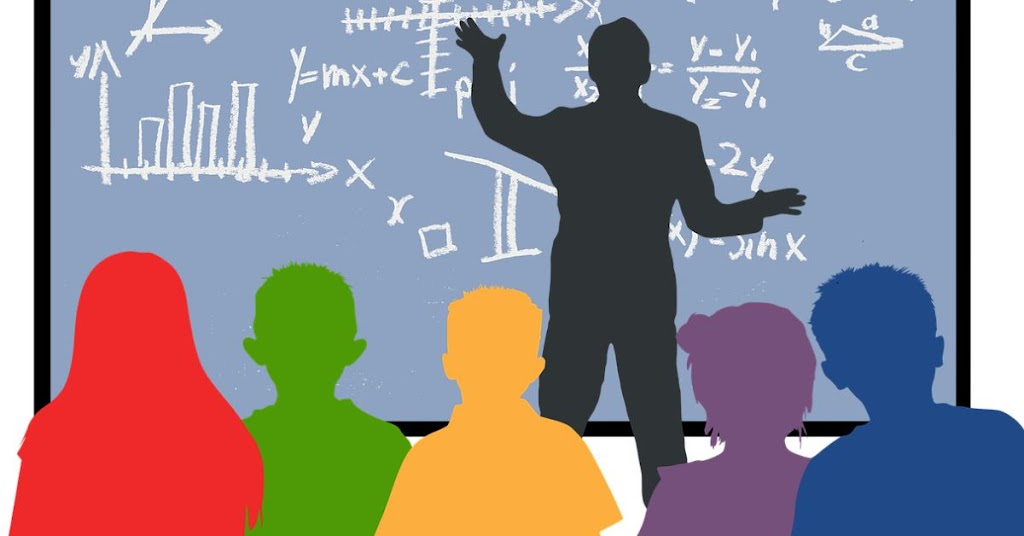
Confidence becomes a cardinal element in applicability in teaching, determining the impacts that such teachers create not only within the provision of knowledge but also toward colleagues. A confident teacher nurtures it and is friendly, motivating, and engaging in risk-taking. This is a channel through which students will be encouraged toward fulfilling directions in a class setting by altering their thinking patterns and emotional stability, hence impacting their academic performances along the entire breadth.
Importance of Teacher Self-Confidence
- Builds confidence in their students: In an environment where teachers believe in themselves, student confidence flourishes.
- Encourages engagement: A confident teacher instructs in a way that is interesting and accessible, conveying real-world learning.
- Offers a positive climate for learning: Confidence allows teachers to address their difficulties with calmness—whether it is behavior, learning disabilities, or anything else they may fight against in their teaching careers.
- Influencing Socio -Emotional development: Students look up to teachers as role models. A self-confident teacher shows the students resilience and emotional intelligence.
- Promotes cooperation among colleagues: A confident teacher promotes teamwork, communication, and being there for one another, which produces a good community of learning.
Continuous Learning Skills for Teachers

Continues learning is a very important life skill for teachers. Teaching is a life-long learning experience. The world, like the curriculum and educational technology, is constantly changing. A teacher who is always willing to go the extra mile to learn will always be successful and effective. This can be accomplished through continuous research, reading new material online and offline and attending workshops, courses, and seminars among other things.
Continuing professional growth is the key life skill for practically all educators who dwell in a dynamic world of education, which is not merely a career but a lifelong journey filled with transformation and discovery. Being a teacher demands constant updates to keep abreast with newer curriculum, teaching methods, and technology if one wishes to be effective on the job and remain relevant. Under such conditions, the teacher who is continuously searching for knowledge would have the advantage of inspiring and promoting excellence in learning.
How Teachers Can Expand Their Learning Further
- Research Continually: An educator awakens himself to present developments in education, teaching strategies, and deeper content knowledge, which enhances his skills of teaching practice.
- Reading New Materials: Books and journals, online and otherwise, allow teachers to alternate materials for multilevel and vigorous teaching.
- Workshops/Courses/Seminars: Professional development training ensures that the teacher and the expert together ensure that he/she achieves better proficiency in a session.
- New Tech in Experimental Learning: The usage of digital tools, AI-based learning platforms, and interactive resources would keep learners hooked and deeply invested in their learning.
- Feedback: Feedback from peers, students, and self-assessment is essential for the professional perfection and growth of the teacher.
Thus, by learning themselves, educators add their skills and vibrancy to the classrooms for their students. Continuous learning becomes the underpinning of a productive teaching profession. Teacher improvement is achieved with growth, authority, and change.
Innovative skills for Teachers
A modern teacher is open to new experiences from new educational apps to teaching techniques and electronic devices. To be innovative means to make real-world connections and cultivate a creative mindset among students. It will encourage students to take risks and learn to work together.
Teachers of the new age [may] be fully equipped with their share of resources to provide great experiences with useful apps, improved didactic methods, and advanced gadgets. Innovating one’s teaching tools is more than merely using technology in teaching; rather, it is about the real-world connection, enabling creative frustration, and preparing students for competing futures. An innovative teacher would have better-engaged students in critical thinking and teamwork-building field trips as well as risky learning endeavors.
How to Keep Teachers Innovative?
- Use Apps and Tools: The fun and interactive nature of platforms such as Google Classroom and Kahoot, supported by an interactive whiteboard.
- Try Out New Teaching Methods: Flipped classrooms, gamification, and project-based learning allow the students to step outside their textbooks.
- Modernize Electronic Devices: Use devices like tablets, VR headsets, and AI-backed tools as they unfold the real immersion of learning.
- Create Real-World Links: Connect the lessons with current affairs and ensure productive use; this way, teachers will be able to emphasize the relevance of education.
- Support Diverse Expression: Have brainstorming sessions, problem-solving opportunities, and idea expressions in varying formats to indulge in a bit of diversity and independent thought.
- Encourage Collaborative Learning: Students learn collaboratively and become confident by peer learning and putting forth their thoughts openly.
Innovation helps conventional teachers build an open and friendly atmosphere in schools, making learning easy and enjoyable while preparing students for the dynamics of a fast-changing world.
Ability to Empower

Teachers must be able to inspire students to be critical thinkers, innovators, passionate and adaptable. They give them the ability to solve problems and they equip them with the tools they need to succeed in school as well as in real life.
Teachers urge students, “Go forth and change the world.” The enthusiastic ox is real proof of man’s yearning to learn. Teachers galvanize the students so that they develop the ability to think critically and creatively and have a passion for learning through life. It would be inestimable to say that the greatest quality of a teacher is the ability to inspire and mentor students to greatness. Teachers impart the will to adapt and critical thinking to students, not just for the ever-escalating schoolyard battles, but for success beyond them. Empowered students help shape confident human beings ready to confront challenges, work for a good living, and continue to become responsible citizens.Teachers should understand how they can empower the students.
How Do Teachers Empower Students?
- Encouragement of Constructive Plowing: The student should be consistently asked to analyze, apply, and subsequently suggest alternative viewpoints to initiate an independent thought process.
- Encouragement of Creating Innovations: This can start with hands-on projects and inquiry-based problem-solving activities; in other words, it gives birth to an innovative mind.
- Developing Some Passion for Learning: The right teacher is a person who nourishes curiosity and creates in pupils a love for the thought of learning: hence, the adventure of learning, not a burden.
- Teaching Students Flexibility: This then translates into equipping them with change and the hurdle of evolving, a lesson that will have trained-groomed every student to survive in this alive dynamic earth.
- Problem-solving skills: Actual cases from real life and teamwork activities arm students to deal with problems efficiently.
- Providing Students with Other Necessary Tools for Success: It engages textbooks, technologies, and research, confirming that they will emerge as proficient, reliable individuals to confront the realities of tomorrow.
When empowered, teachers will see confident, capable individuals ultimately making positive choices that shall lead to success in their preferred journey.
You may like to read: Value-Based Education: The Key to Holistic Development in Today’s World
Classroom Challenges for Teachers
Curriculum Planning: How to Optimize Learning with Proven Models
Peer Groups in Education: Boosting Academic and Social Growth
FAQ’S
1. Why is adaptability an important skill for teachers?
Adaptive teachers do not spend a lot of time regretting things like curriculum changes, technical problems, or students’ misconceptions; they begin working on a solution right away. This capability to switch their mode of teaching according to their students’ different learning preferences has made many teachers adopt all kinds of new technologies to deliver one of the most engaging learning experiences for students.
2. How does teacher confidence have an impact on student success?
A confident teacher creates a conducive atmosphere for student participation and builds an environment for self-confidence. A confident teacher knows how to deal with challenges as they arise, creates a collaborative aura among fellow teachers for the betterment of the entire learning process, and addresses the social and emotional growth of the students.
3. What are the effects of continuing education for teachers?
Being a teacher means identifying with the greatest, most current trends in education, strategies of teaching, and use of educational technology; therefore, it is requisite that teachers embrace continuous learning and personal development. Workshops, literature, and in-service training enable development and growth to keep students in the learning environment and help teachers fit into the dynamic education system.
4. How can innovation be employed by teachers in demonstration?
Teachers can innovate in their own words: by using educational apps, teaching modern pedagogic principles such as gamification and flipped classrooms, allowing the use of digital tools (VR, AI, interactive whiteboards), and encouraging students to be creative problem-solvers. Innovations further engage students and help them build their future.
5. How does the teacher play an empowering role for a student?
Teachers, by engaging the students in critical thinking, creativity, love for learning, and teaching adaptability, thereby begin empowering the students. They expose students to a world of problem-solving, which might help them in their future assignments to grow into self-assertive and forcibly whole persons and purposefully put themselves into whatever be their way.

